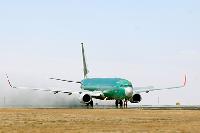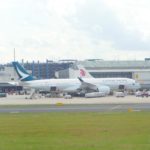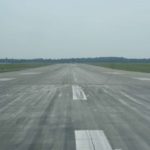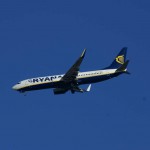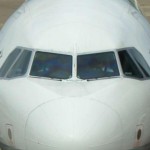Next-Generation 737 Operators Benefit from Reduced Weight, Emissions
SEATTLE – Boeing recently completed certification testing of new carbon brakes designed for the Next-Generation 737 airplane family by French supplier Messier-Bugatti.
A Next-Generation 737-900ER (Extended Range) airplane is shown performing a high-speed rejected takeoff test, designed to verify that an airplane at maximum weight with greatly worn brakes can stop safely after a refused takeoff decision. Boeing will submit the test results to the U.S. Federal Aviation Administration for certification the second quarter this year. Entry into production is expected by third quarter. Boeing will offer a retrofit program for airplanes already in service.
Through a month-long test program, Boeing reached its goal to show equivalent performance between steel and carbon brakes, and verified a weight savings of 700 pounds (320 kg) compared to high-capacity steel brakes for Next-Generation 737-700/800/900ERs, and 550 pounds (250 kg) on standard-capacity steel brakes for Next-Generation 737-600/700s. Reduced weight contributes to reductions in associated fuel burn and CO2 emissions depending on airline operations.
The Messier-Bugatti carbon brakes are available as a new feature.
Photo: Boeing
